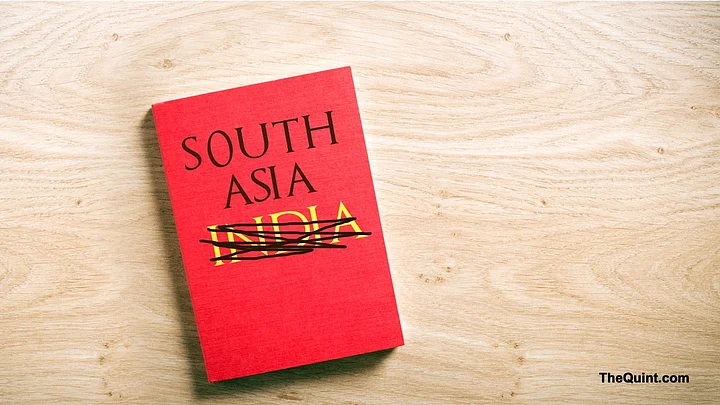It seems to be a time to re-write the History of India. History is a peculiar subject – it is the victor’s tale.
As Indians, however, we’re practicing a curious paradox: we’re omitting Nehru from our school textbooks in Rajasthan and across the Atlantic, in California, our diaspora is fighting against erasing our legacy from their school textbooks.
What’s In a Name?
About a month ago, Social Science and History textbooks for class 6th and 7th students in California underwent minor changes in its curriculum. The alterations, however, pinched the large Hindu community in California. The dispute centred around the Californian Board of Education’s proposal to call undivided India (India before 1947), that includes Pakistan and Bangladesh, South Asia.
The proposal and the eventual enactment once again brought academicians, historians, and professors engaged in a verbal duel, taking ahead the long-running battle of “what constitutes India” into the virtual medium.
At the helm of the debate is the Hindu American Society (HAF) which advocates that India’s position should stay uncontested in History books.
HAF seeks to ensure that Indian and Hindu American students are able to feel secure in their religious and cultural identities and are not bullied due to misrepresentations of their beliefs, culture, or heritage.Samir Naik, the Senior Director and Human Rights Fellow, Hindu American Foundation told The Quint
The Hindu American Society and the supporters of the cause pleaded with the Education department to retract the decision to call undivided India ‘South Asia’. For them, territorial names are equivalent to their identity. Erasing any part will also erase their culture and heritage.
#DontEraseIndia
The debate may seem somewhat isolated but it has galvanised enough fire power on social media. An online petition started by Vamsee Juluri, Professor of Media Studies, University of San Francisco, urges Hindus to “sign up” and fight for their statehood. It alleges that a group of South Asian professors are appropriating themselves as the custodians of history and undertaking changes in the textbooks.
Incidentally, the online campaign, #DontEraseIndia was launched on 6 April, the 86th anniversary of Mahatma Gandhi’s Dandi March.
Here’s how the activity is panning out on social media:
Brouhaha or Something That One Should Take Note Of?
“On the first day of school, teachers promise us that we will feel safe and protected in their classes... but after reading the chapter about Hinduism in my textbook, I felt exposed, vulnerable, and my heritage inferior to others.”A class IX student from San Jose, California
The HAF argues that the South Asian professors are using their half-baked knowledge to listlessly replace India with South Asia. “Did Christopher Columbus come searching for South Asia or India?”, they ask.
However, the HAF’s stance on casteism seems problematic. On one hand, it wants the disputed territory to be called India, and on the other hand, it vehemently opposes the textbooks’ claims that casteism was a Hindu phenomenon. It wants casteism to be defined as a regional construct not specific to Hindus.
Truce In the Offing?
The HAF has proposed a recommended framework to the California Education board and it expecting a turnaround soon.
The debate has nevertheless brought out the issue of representation of immigrants to the forefront. It is critical that frameworks and textbooks depict not just Hindus, but all groups accurately, fairly, and equitably, in order to better educate all students and prepare them for an increasingly globalised society. Just as we would condemn Islamophobic, racist, homophobic, or sexist language in the frameworks, language that seeks to undermine or erase a certain portion of history should be looked at critically.
And this also holds true for omissions that we are orchestrating in our own country.
Also read: Adding the Gita, Omitting Nehru: Ideology and Education in India
